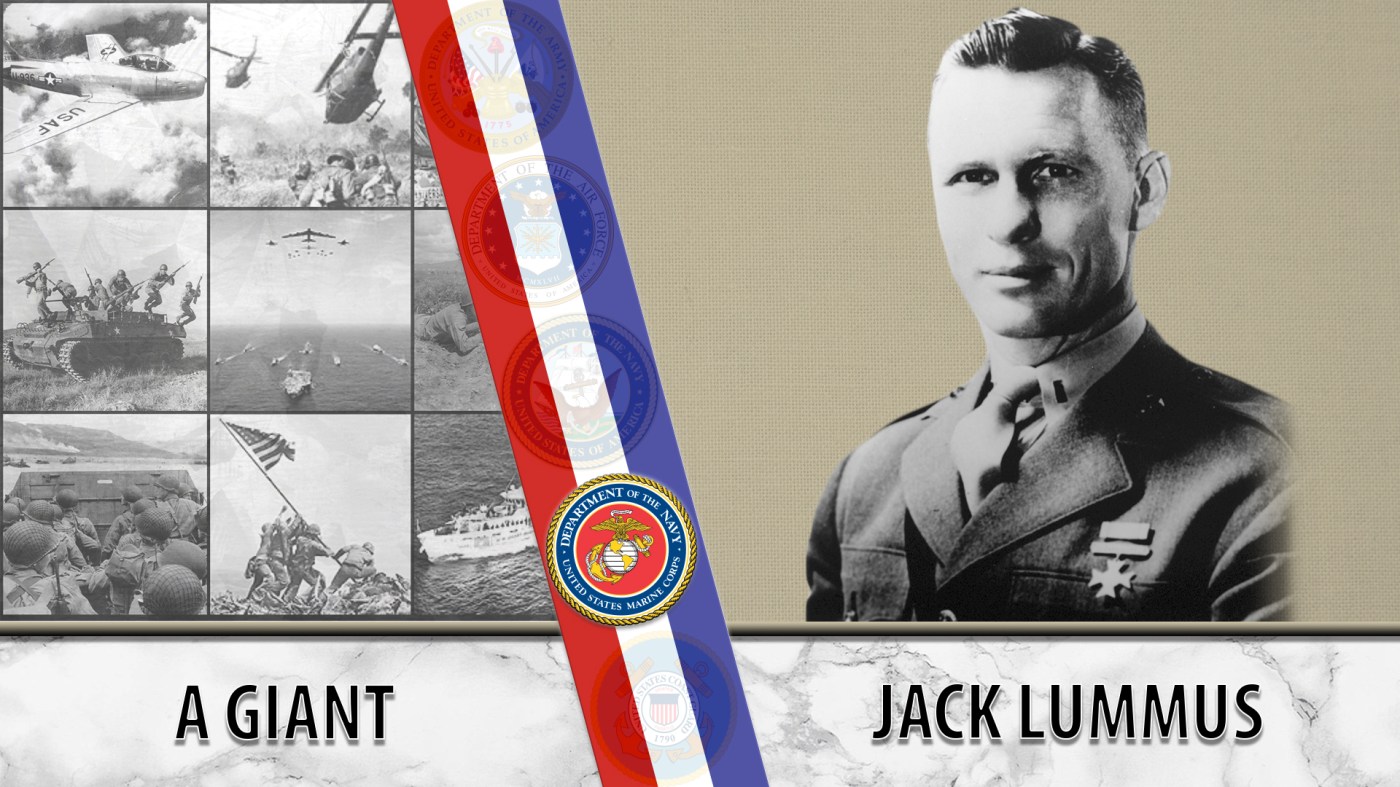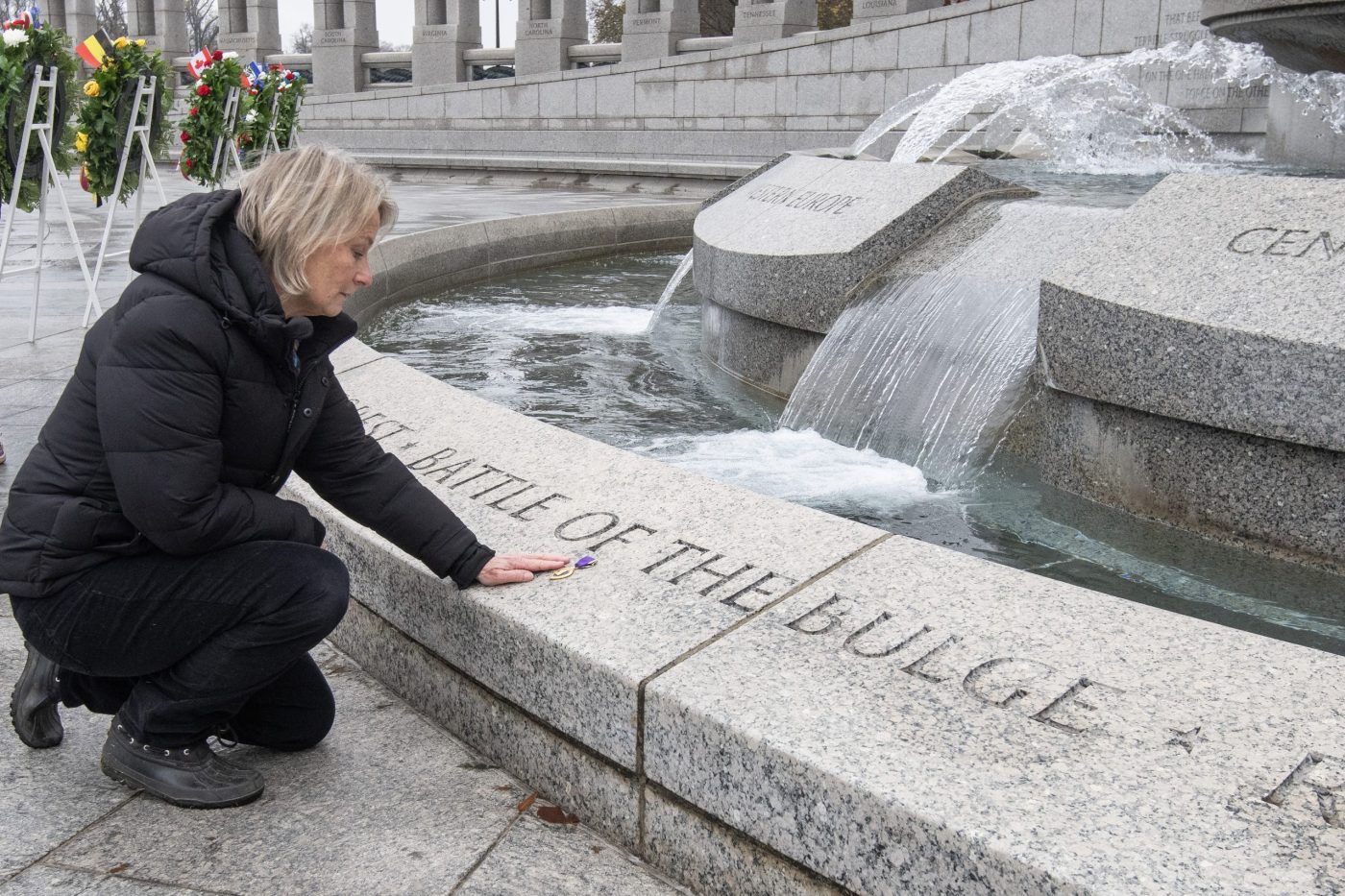
Jack Lummus was a two-sport pro athlete and two-way end for the New York Giants, and a Medal of Honor recipient for heroics during the assault on Iwo Jima.
Jack Lummus was born on October 22, 1915, in Ennis, Texas. A talented athlete and scholar, Lummus graduated from the Texas Military College in May 1937 and received an athletic scholarship from Baylor University, where he played both baseball and football from 1937 to 1941. Following his educational career, Lummus enlisted in the U.S. Army Air Corps in May 1941, but was washed out of flight training and discharged in August of the same year.
Lummus joined the New York Giants (football) as a two-way end, but ultimately sacrificed his spot on the team to serve his country following the surprise attack on Pearl Harbor in December 1941. Lummus enlisted in the U.S. Marine Corps in Jan. 1942. He graduated basic training in San Diego, California, and served as military police until October 1942. He was commissioned as a 2nd Lt. in the U.S. Marine Corps in December 1942, and served with the Marine Raiders in California until Jan. 1944. Lummus served as the executive officer of Company F, 2nd Battalion, 27th Marines of the 5th Marine Division until 1945. On February 19, 1945, Lummus was part of the first wave of Marines at Iwo Jima. Lummus first served as an artillery spotter, but took direct command of the 3rd Rifle Platoon for Company E in March of 1945.
Lummus handled the new leadership responsibility with immense bravery and skill, leading his men throughout the two-day struggle during the battle for Nishi Ridge. Facing almost insurmountable odds and heavily fortified enemy positions, Lummus’ contributions to the battle were immense even under direct enemy fire. Even with a serious shrapnel wound, Lummus continued forward, at times alone, destroying pillboxes, bunkers and directing his men from the front. Clearing numerous foxholes and spider holes, Lummus stepped on a concealed land mine, which destroyed his legs. Even while he was being carried away from the battlefront, he continued to shout orders and direct his men.
Upon being transferred to the field hospital, Lummus told his doctor, “Well Doc, the New York Giants lost a mighty good end today.” Lummus died of his wounds. He is remembered as a stupendous leader, fierce soldier, and only one of two professional football players to receive the Medal of Honor (May 30, 1946). In 2015, the New York Giants inducted Lummus into the Ring of Honor.
We honor your service, Jack.
Contributors:
Graphic designer: Dominique Ramirez
Editor: Andre Wiley
Topics in this story
More Stories
The 80th anniversary of the beginning of World War II's Battle of the Bulge was commemorated at the World War II Memorial in Washington, D.C. on Monday, Dec. 16, 2024.
Soldiers' Angels volunteers provide compassion and dedication to service members, Veterans, caregivers and survivors.
Veterans are nearly three times more likely to own a franchise compared to non-Veterans.






Thank you for remembering Jack Lummus. Hoping that you can keep up this fine tradition of recalling other wartime sports heroes on Veterans Day.